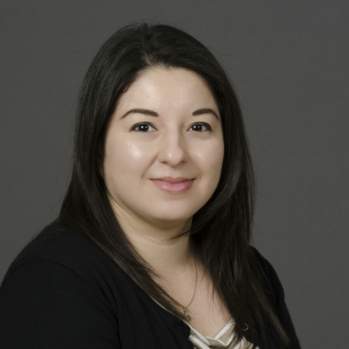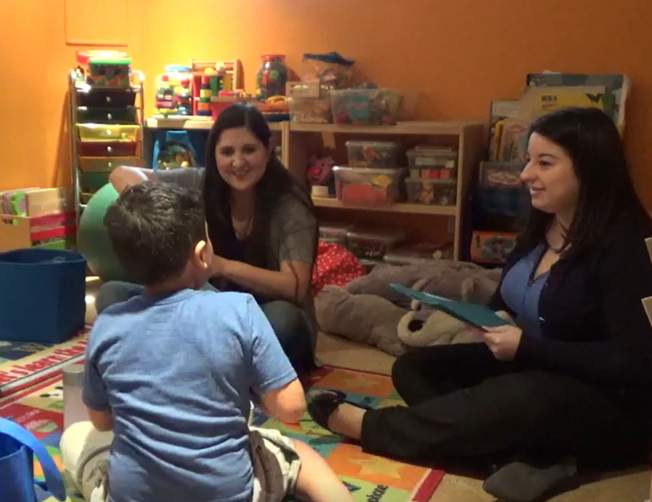Autism program addresses disparities by training parents
March 5, 2020

Receiving early intervention for autism spectrum disorder (ASD), including behavioral therapy, can be critical in addressing developmental delays and improving children’s outcomes. Despite increased awareness of ASD, disparities remain in the screening, diagnosis and treatment of children from minority and low-resource communities.
To address these disparities, Dr. Sandra Vanegas, an assistant professor in the School of Social Work at Texas State University, has created the ASD Screening and Parent ENgagement (ASPEN) Intervention Program. Texas State offers the program in English and Spanish for children with ASD or developmental delays between 18 months and 6 years of age who live in low-resource households.
Over the course of 12 in-home training sessions, student clinicians from Texas State University and the University of Texas at Austin, teach parents strategies to promote their child’s social communication and play skills, while addressing challenging behaviors. Siblings and family members of individuals with disabilities also participate as peer leaders.
“Although many programs exist for parents of children with ASD, few have focused on the unique needs of families with low resources, and few have been created specifically for culturally and linguistically-diverse children and families,” said Dr. Vanegas. “We set out to adapt and create a parent-mediated intervention program that will be accessible, feasible, and effective for these families.”

Initial funding from Texas State’s Research Enhancement Program supported a pilot study of the ASPEN program with 10 Spanish-speaking families in Austin, TX. This pilot project started in fall 2019 and will be completed in spring 2020.
Additional funding from the National Institute on Disability, Independent Living and Rehabilitation Research (NIDILRR) subsidized a randomized trial of the ASPEN program in low-resource communities in the Central Texas region. The NIDILLR-funded project will help serve approximately 160 families in the Austin and San Marcos region.
The program is also supported by collaborators at the University of Texas at Austin and community agencies including Any Baby Can, Texas Parent to Parent, and Vela.
Dr. Vanegas hopes the ASPEN program can be integrated into existing Central Texas agencies so their staff members are trained on how to make the program available to families they serve.
Share this article
For more information, contact University Communications:Jayme Blaschke, 512-245-2555 Sandy Pantlik, 512-245-2922 |